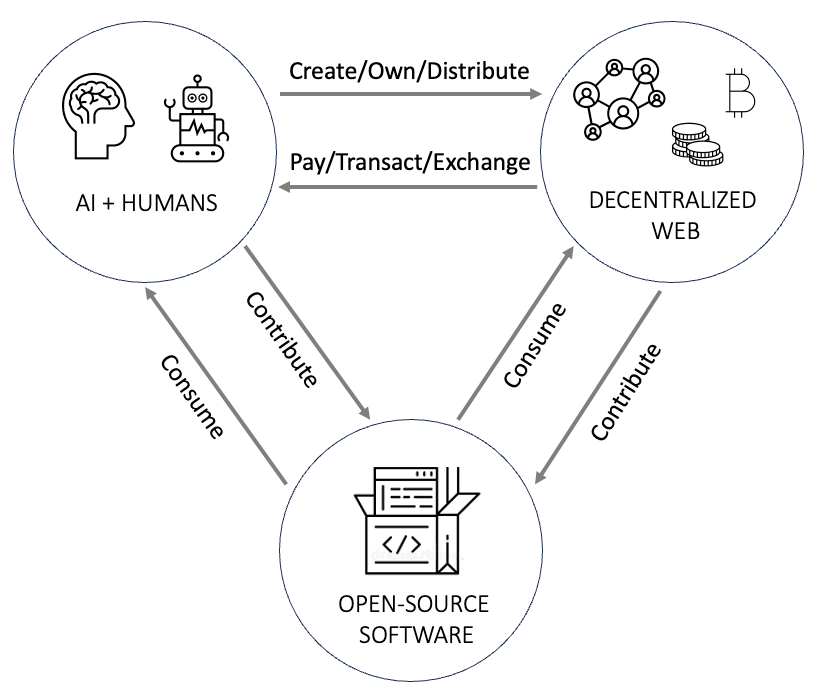Game Changers
In the next five years, AI and Web3, powered by open-source software, will transform how we create, own, and distribute value on the internet.

Digital technology has revolutionized our world by creating new opportunities and connecting people globally. However, not everyone has benefitted equally from this digital revolution.
Even though there are over 5 billion active Internet users worldwide, most of the economic value created by these users is controlled and captured by large organizations.
Big, centralized entities use three key business moats to maintain their disproportionate advantage:
- Resource barriers: big organizations have more resources. This allows them to be more productive, scale massively, and beat smaller players who have fewer resources.
- Centralization barriers: big organizations act as gatekeepers of their platforms and reap most of the rewards, while users gain limited economic value by participating in these ‘walled gardens’.
- Proprietary barriers: big organizations build their applications as closed-source proprietary software, which keeps users locked in and prevents the development of cheaper, more accessible alternatives.
Finally, there is some hope for changing this power balance in our digital economy. Artificial Intelligence (AI), Decentralized Networks (Web3), and Open-Source Software - game changing technologies that will break down these moats, are finally maturing and gaining adoption.
This article explores how AI and Web3, powered by Open-Source Software, can make the digital economy fairer, create opportunities for smaller players, bridge gaps for the disadvantaged, give digital ownership rights to individuals, and promote equitable economic participation and exchange.
1. AI will break resource barriers
Artificial Intelligence tools will change our traditional notion of productivity, skills, and ability. AI-based agents can greatly benefit small organizations and individuals who don't have a lot of resources.
AI-powered automation can help smaller companies, non-profit organizations, and startups do more with less, allowing them to compete with larger, better-resourced players in the market. AI can also help workers learn new skills and even augment their abilities, increasing their chances of competing in the labour market.
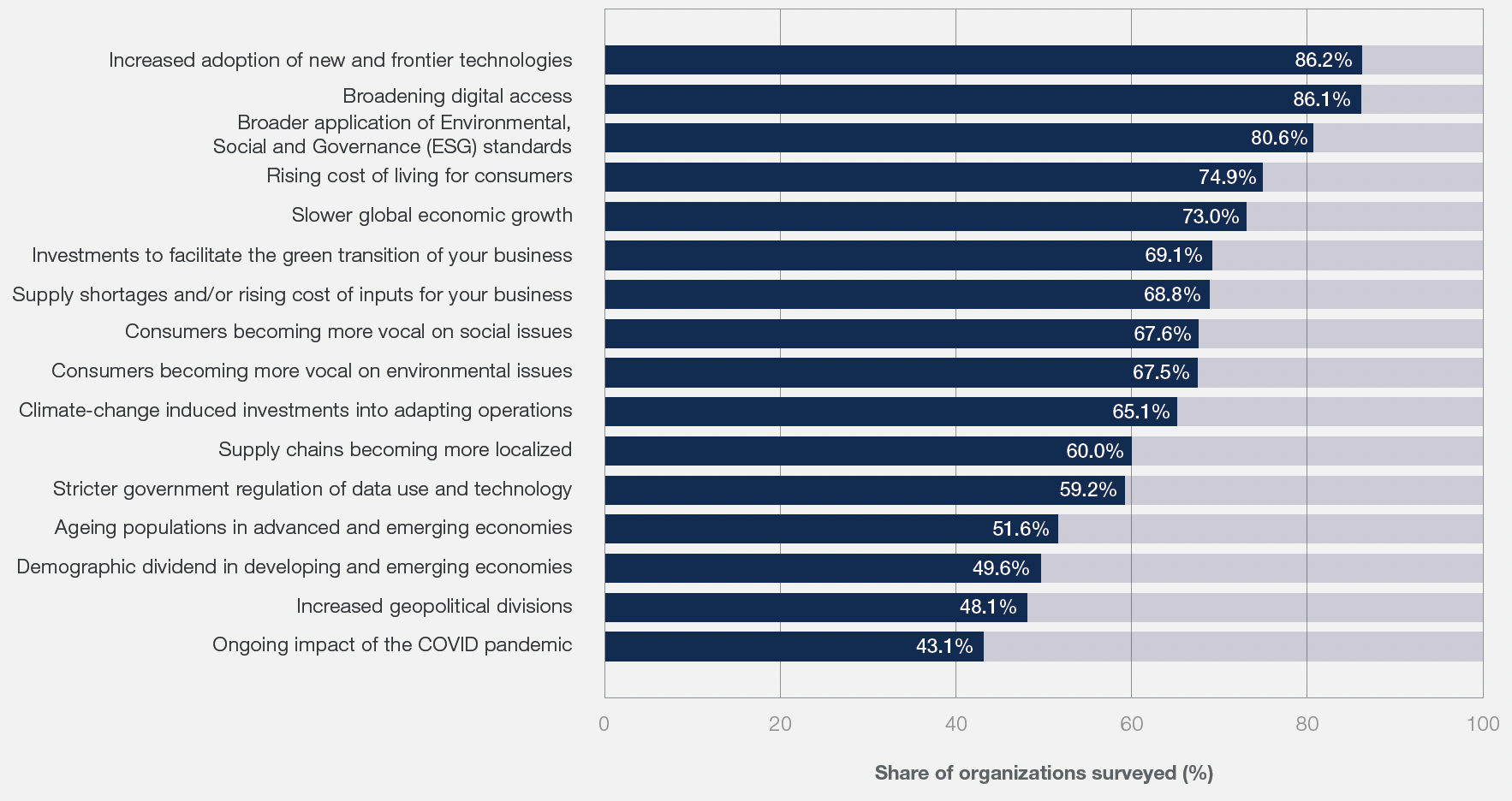
AI can be a great equalizer for people who don't have the same access to education or skills development as others. For those who are willing to use AI to improve their abilities, the next decade will bring a revolution in upskilling.
A recent study conducted by teams at Stanford and MIT on call center agents found that the use of an AI assistant provided an overall 14% gain in productivity.
More importantly, the study's main finding was that majority of the gains accrue to novice or less able workers, who move up the ability scale much faster than experienced workers when assisted by AI.
2. Web3 will break centralization barriers
Web3 is the next evolution of the internet that uses digital tokens as a unit of value and allows decentralized peer-to-peer interactions. Web3 applications, powered by public blockchain infrastructure, will enable new ways of economic participation and value exchange.
Through transparent rules-based distribution of digital tokens, economic value can be shared equitably among users, creators, builders, and investors. By removing intermediaries and empowering individual participants, decentralized networks will offer a fairer distribution of rewards in the digital economy. Web3 also provides proof of ownership for digital assets, thus enabling property rights on the internet.
There are many Web3 projects that are currently in development and early stages of adoption. These projects could radically change how we use the internet in the future and hold the promise to disrupt many of the centralized platforms and applications we currently use.
From digital tokens as incentives for providing your data, expertise, and attention, to digital tokens as rewards for sharing your digital resources, to tokenization of real-world assets, to digital ownership of virtual assets, the list of Web3 applications being built is long...and growing every day.
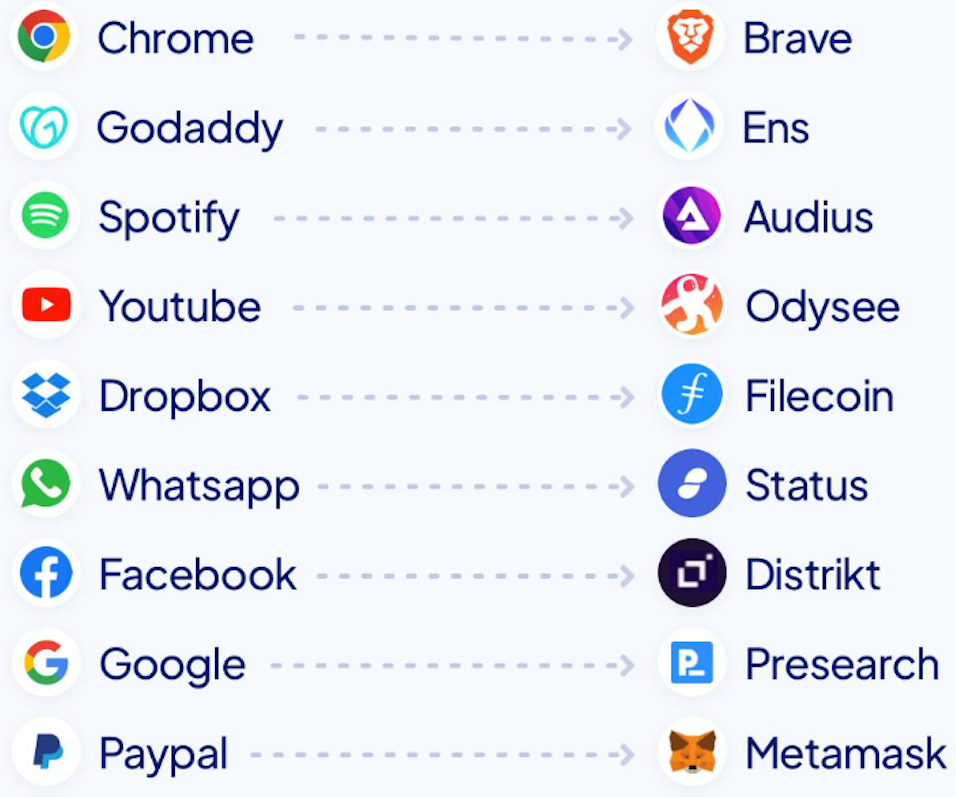
3. Open source will break entry barriers
Throughout history, cost and access have been the biggest barriers to technology adoption. In the early 20th century, cars were only for the rich until Henry Ford made them affordable. In the early 21st century, internet access and smartphones were a privilege that only a few could afford until connectivity and mobile devices became globally available and commoditized.
Once cost drops and the technology becomes accessible, adoption skyrockets!
Currently, both AI and Web3 suffer from the barriers of cost and access. I believe that the availability of open-source software, combined with the declining cost of computing, will lead to a boon of affordable AI tools and drive mass participation in Web3 platforms.
In the next five years, as open-source AI models and tools become more readily available and as decentralized Web3 applications become mature and user-friendly, we will start seeing a massive increase in adoption rates.
The groundwork for this shift is already happening, with open-source and community-based development happening in both AI and Web3.
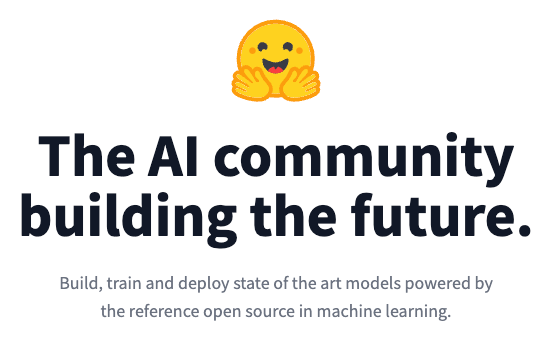
Hugging Face is an online community for open-source Artificial Intelligence, where the latest AI models are shared with everyone.
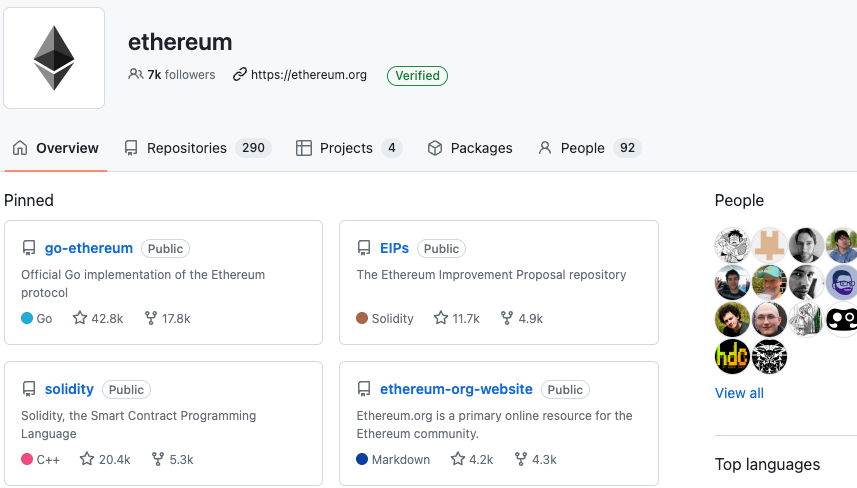
The Ethereum network, which provides infrastructure for Web3 apps, is run as a community project, with source code available on Github.
Conclusion
Over the last two decades, the widespread adoption of internet connectivity and smartphones created a 'geographic flattening' by enabling low-cost digital access to the global economy for people around the world. This is why someone living in a remote city in India has real-time access to the same information and the ability to participate in the digital economy as much as any person who lives in say New York, San Francisco, or London.
In the next five years, artificial intelligence and decentralized networks, powered by open-source software, will lead the next wave of 'internet flattening' by providing people an alternative to the walled gardens that have been created by large organizations and technology companies. AI and Web3, made affordable through open-source software, will create a new digital economy where value will be created, owned, distributed, and accrued online in a completely different way.
